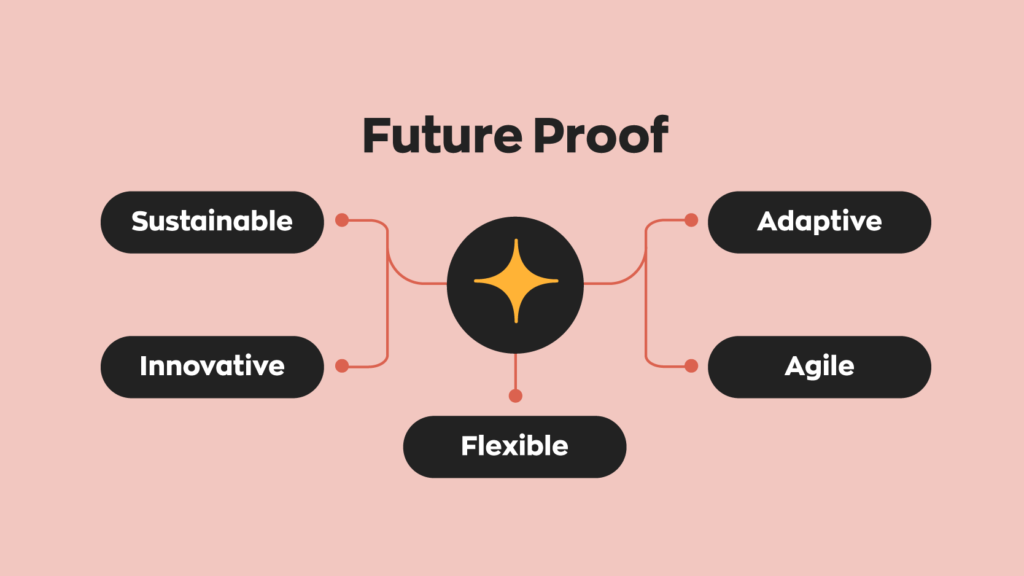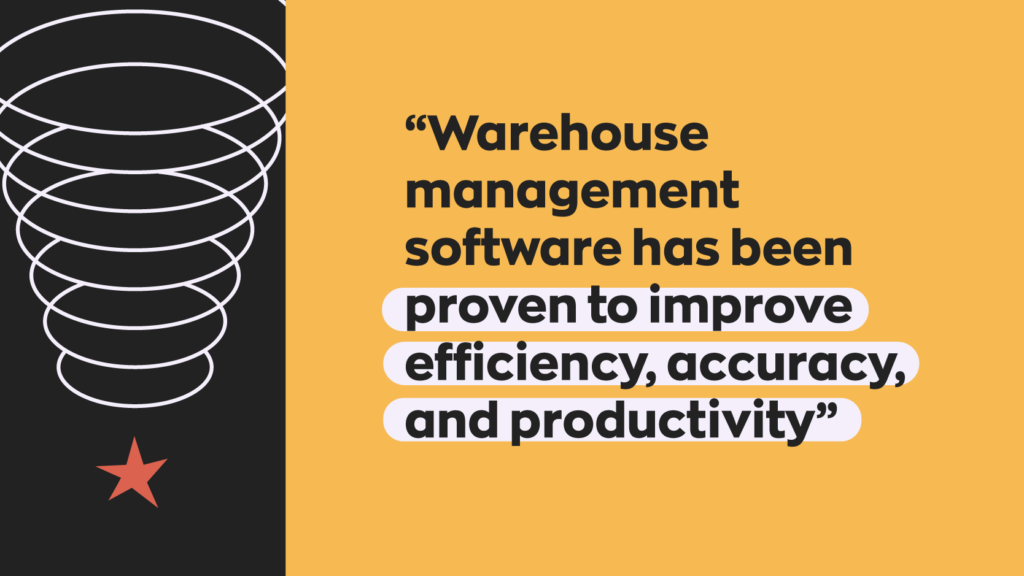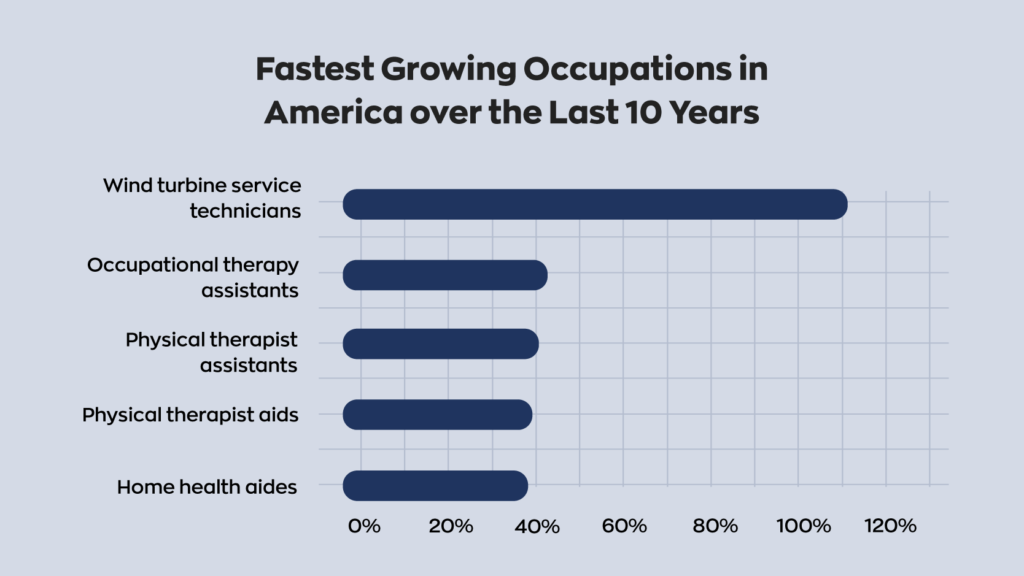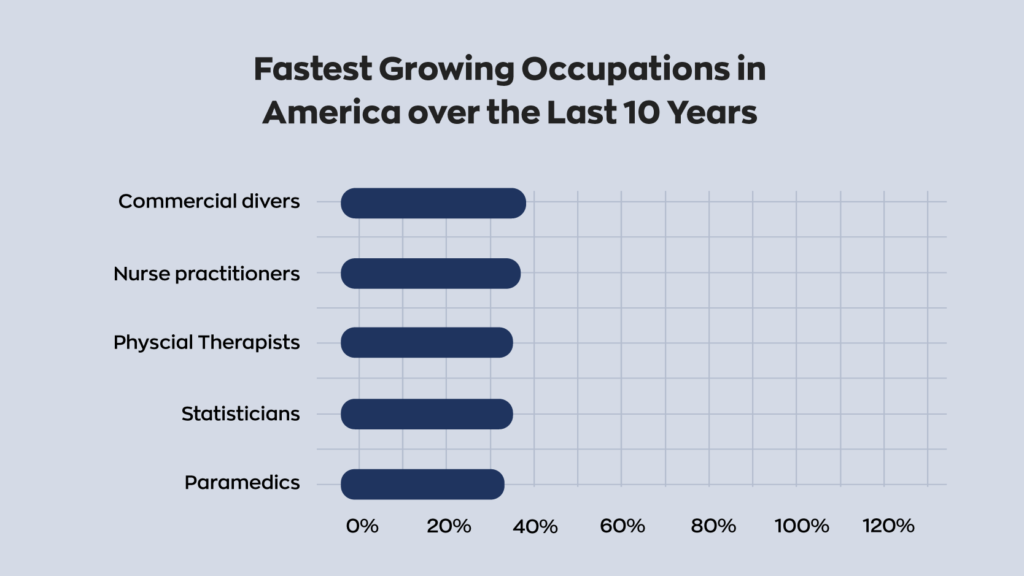The business world is changing rapidly, and companies unable to adapt to changes brought on by challenges and innovations inevitably fall behind. The Harvard Business Review pointed out that the use of automation and analytics accelerated during the COVID-19 pandemic. At the same time, finding and training people with business-critical skills became more important.
Meanwhile, Forbes hypothesized that companies must look to the needs of customers and employees to predict future trends. They should also create adaptable workforces and processes agile enough to meet future needs and also respond to unpredicted challenges.
Failure to take such steps can hurt a company’s ability to compete and, in the long run, survive in its industry. However, those that future-proof their operations will be better prepared for the rapid pace of change in their industry.
What is future-proofing?
Future-proofing is the practice of preparing for changes and challenges. It involves developing agile and sustainable business practices that can weather problems or change without interrupting operations.

Industries and economies are always in a state of flux. Change is a constant in the business world. However, technology and connectivity are increasing the speed of change. For example, as the Harvard Business Review pointed out, hybrid and remote working became the norm in some industries over the three pandemic years.
Also, environmental issues and global warming are beginning to increasingly impact businesses in many sectors.
The importance of sustainability in future-proofing
Not only are some industries affected by global warming, but the public is more concerned about the environment than ever before. A 2022 Gallup study found that 44% are very concerned about environmental quality, while 27% worry a fair amount.
Many of these people have changed their habits and the way they purchase products and services because of this concern. Companies that don’t address environmental issues in their operations and fail to mention it in marketing could fall behind those making it a central part of their business model.
Because of this trend, companies include sustainability as a primary trait when building a brand.
Here are six ways to future-proof a business.
Streamline your operations using technology
Technology is a key component of future-proofing. Companies can streamline operations by automating certain processes and using data-driven analytics to:
- Reduce waste and emissions;
- Lower the chances of human error;
- Predict future problems;
- Quickly adjust to current challenges.
An example of future-proofing technology is warehouse management software. This tool allows managers to oversee their systems remotely and streamline routing so that the system operates as efficiently as possible. These programs can also assist with record-keeping by putting all pricing and order data onto a central platform.
Software can also help automate manufacturing processes and track materials and stock levels so that producers have what they need without waste. These tools can improve sustainability and production rates.

Technologies like AI and robotic process automation garner headlines. However, recent upgrades to time-tested systems like barcoding can also help accurately track inventory to reduce waste and make cost-effective plans for ordering products or materials.
Reevaluate your customer engagement strategy
Customer engagement strategies are a vital aspect of future-proofing. Highlighting sustainable practices in marketing and branding is just one practice companies can adopt.
Personalization is also essential. Seventy percent of consumers now expect companies to offer a personalized experience based on their customer profile and online activity. Automating personalization can help companies keep up with current consumer trends, regardless of what they might be.
Ecommerce firms can use smart software to optimize inventory. With the right data, they can project inventory needs, order supplies at the correct times, and respond to spikes in demand caused by unforeseen events. These tools will keep customers happy and pave the way for future purchases.
Institute a social responsibility policy
Social responsibility in business involves taking ethics and community well-being into account when assessing business operations and building strategies for the future. Companies institute policies to ensure they abide by these values.
Social responsibility is essential for future-proofing because consumer values change and companies need to adapt. For example, the Gallup environmental concern poll found a significant increase in awareness about the issue over a seven-year period. Companies had to become aware of the shift in consumer values and adjust their operations accordingly during that period.
Awareness of shifting social values and adaptable social responsibility policies can help companies make the changes necessary to meet current consumer expectations.
Recycle and repurpose excess inventory
Companies can also address the environmental impact of waste in their business processes and reduce financial losses by recycling or repurposing excess inventory. Unused materials and products end up in landfills or incinerators. They also add to a company’s overall carbon footprint because of the emissions created when making them, shipping them, and transporting them to waste facilities.
In addition to using software to streamline ordering and predict demand, companies can find ways to repurpose overstock. For example, designers could find ways to use excess materials in new or different products and sell unused products at a discount to consumers, wholesalers, or other companies.
Monitor labor market trends
The labor market has changed exponentially over the past decade. In some sectors, remote work has become the norm, companies have had to find employees capable of operating new technology, and talented individuals have been drawn to different sectors.


Businesses that monitor these rapid changes can adapt their recruitment strategies and employee arrangements to attract and retain the right talent.
For example, remote work allows companies all around the world to recruit the best talent regardless of location. Companies unable or unwilling to adapt to this trend will limit their talent pool. They could also lose out on local applicants expecting remote or hybrid work arrangements.
Another important trend in today’s labor market illustrates an overlap between employment and social responsibility. Most of today’s workforce want to find jobs with companies that share their values. A well-defined and updated social responsibility policy can assist in attracting the best employees.
Create an innovation-friendly environment
There are two ways that companies can include employees in their future-proofing efforts. The first is to create an innovation-friendly environment where workers feel empowered to share new ideas about strategies and processes. A company could give employees a forum to voice their ideas or allow them to test new or adjusted techniques and strategies.
Also, instead of hiring new talent when deploying new processes or technology, a company could create an in-house training program. Or they could use a third-party educator to provide current employees with the skills to handle these new operations. This strategy allows you to take advantage of the connection you already have with current employees rather than investing time and money in onboarding new employees.
With these strategies, companies can adapt to both predicted and unexpected challenges without significant disruptions to their operations.






0 Comments